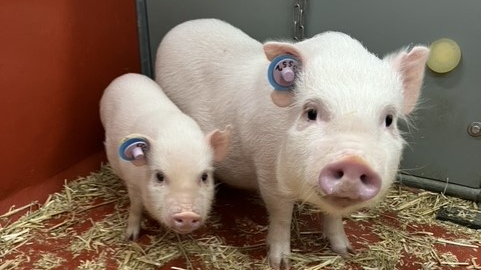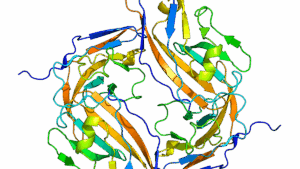
Scientists prevent transplant rejection
Scientists at Hannover Medical School (MHH) have genetically engineered pig lungs in such a way that immunosuppressants could be reduced during transplants.
Immune rejection remains the major obstacle to long-term survival of allogeneic lung transplants. Now, a group led by first author Costanca Figueiredo from Hannover Medical School significantly improved the survivability of transplanted allogenic pig lungs. Experimental minipigs, which physiologically mimic the situation in humans, survived for up to two years without immunosuppression when swine leukocyte antigen (SLA) expression was permanently down-regulated using lentiviral transduction of short hairpin RNAs targeting mRNAs encoding β2-microglobulin and class II transactivator. Despite great scientific progress, organ rejection is still a major obstacle. Almost 25 % of kidney transplant recipients lose their organs within five years, and lung transplants are rejected even more quickly due to mismatched molecules of the major histocompatibility complex (MHC).
In order to improve organ survival, Costanca Figueiredo and colleagues genetically switched off the expression of porcine leukocyte antigens – the counterpart to MHC in humans – in the lungs of pigs. The aim was to avoid the undesired immune reaction. A total of seven genetically modified and seven controls were transplanted.
After four weeks, the team discontinued the immunosuppression. Within the control group, 100% of the organs were rejected within three months. In the verum group, five out of seven animals retained the lung transplants for the two-year study period and showed fewer SLA antibodies and a lower cytokine level
These approaches ‘could provide an ideal solution to many problems that occur after transplantation, allowing transplant recipients to live without rejection and immunosuppression, better graft survival and a higher quality of life,’ said Figueiredo.


 Sitryx Therapeutics
Sitryx Therapeutics SANOFI
SANOFI Pleiotrope - https://commons.wikimedia.org/w/index.php?curid=15999847
Pleiotrope - https://commons.wikimedia.org/w/index.php?curid=15999847